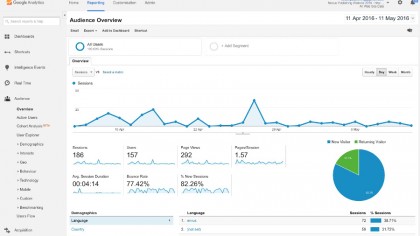Content management systems: A business buyer's guide
How to choose the right CMS for your business
Content creation
Having a CMS makes the management of the content you produce efficient, but you still need to think about how to create high-quality compelling and engaging content that you use with the CMS you have chosen. The main components of great content include:
1. Search engine optimisation (SEO)
Google loves content, so the ability to have search engine optimisation included in the CMS makes sense. It will also save you money compared to the costs of employing an SEO expert.
Most SEO is achieved by linking the content with keywords and key phrases and with content tags into multiple sections of your site. For example, a page might be tagged as news, but it could also be tagged as a feature, and the keywords are likely to be things that describe what the content is about.
2. Connecting to social media
After SEO the next best way to use your CMS to communicate your content to customers and readers is by using social media. The CMS you choose should make it straightforward to link the content you have created to the leading social media networks including Twitter and Facebook.
Don't forget LinkedIn if you are a B2B company, and networks such as Pinterest, YouTube and Instagram to communicate image-based content. Making the link to social media within your CMS usually means installing plugins. The power of these features is that you create your content once, and then push details out to the social media networks often by simply ticking a box on your CMS.

3. Analytics and your CMS
How do you know how well your CMS is performing? It's great that you can now create world-class content quickly, and shout about this across social media, but knowing who is reading your content is powerful information to have.
Using Google Analytics in association with your CMS is a great and free way to analyse the content you are creating. The information you gain can then feed back to your content creation teams to help them improve future content.
Sign up to the TechRadar Pro newsletter to get all the top news, opinion, features and guidance your business needs to succeed!
Conclusion
Having the right CMS for your business is now vital. Content is often the most precious component of your business that supports many products and services, as well as forming the foundation of your company's marketing activities.
The future of CMS is more multi-channel applications, where content is created and then used across a number of outlets from web to mobile. Your CMS should boast multi-channel features to ensure your content reaches the right people, at the right time, and in the right format.